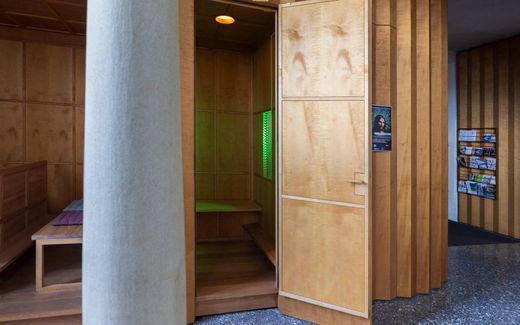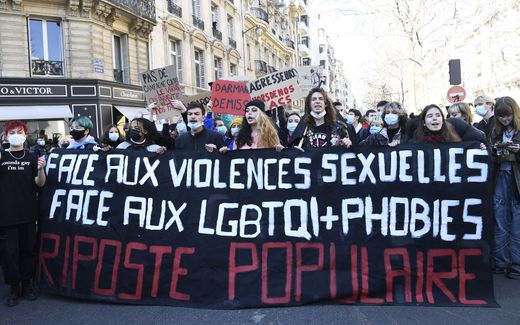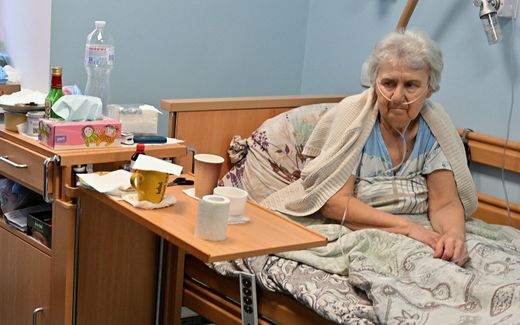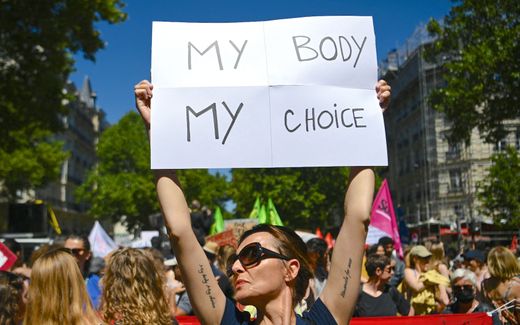CNE's Podcast: French gynaecologist suspended for refusing to treat a trans woman

Photo CNE, Canva
European Union
NewsRound Europe is CNE’s news podcast. It has a bulletin with some remarkable news topics from the European continent. At the end, we have a question-and-answer session with a colleague about an article.
Polish demand to ban confession for minors
The Catholic archbishop Gądecki criticised a petition in Poland that demands a ban on confession for children under 18. Confession is a sacrament for Roman Catholics to receive forgiveness of sin.
The petition argues that confession is traumatic for children and causes humiliation and fear. It would confront minors with the concept of good and evil too early. At the moment, the Polish parliament the Sejm is considering this petition. 13,000 people have signed the petition.
The archbishop, however, called the idea of such a ban "nonsense," emphasising that Christian traditions, as confession, have existed for nearly 2,000 years. He compared the petition's ideas to communist-era restrictions, where children were not allowed to be baptised or attend church until they were 18.
Gądecki believes children need spiritual formation from a young age, not only after they turn 18. He explained that sacraments, including confession, help shape a person gradually and should begin from birth. The archbishop stressed that children should be taught the truth at every stage of development, making confession an important part of their spiritual growth.
Third Swiss without religion
In Switzerland, the number of people without religious affiliation continues to rise. In 2023, 36 per cent of residents reported not belonging to any religious group, up from 34 per cent in 2022.
The percentage of Roman Catholics decreased slightly from 32 per cent to 31 per cent, and the proportion of members of the Protestant Evangelisch-Reformierte Kirche dropped from 21 to 19 per cent.
Last year, it was reported that for the first time, people without religious affiliation outnumbered Roman Catholics in Switzerland. Religious affiliation varies significantly by nationality.
Among Swiss nationals, 29 per cent are non-religious. This is much lower than the 55 per cent of Germans, 63 per cent of French, and 45 per cent of other Europeans.
The percentage of Evangelical Reformed Swiss nationals (28 per cent) is higher than other national groups. The highest percentage of Roman Catholics is found among Italian (68 per cent) and Portuguese (67 per cent) nationals.
People from the Balkans are predominantly Muslim, while only 2.8 per cent of Swiss nationals belong to this faith.
French gynaecologist has to pause his work
In France, the gynaecologist Dr. Victor Acharian, is suspended for six months by the regional medical board after refusing to treat a transgender woman in August 2023.
The patient, who had made an appointment for chest pain, was told by the doctor's secretary that he would not see her because he only treated "real women", and that his qualifications don't give him the competence to treat men. But looking back, the gynaecologist admits that he was angry.
The patient described the refusal to treat her as "violent". The story went viral after her partner’s comment on social media. Dr. Acharian later explained he was “angry” and apologised for hurting the patient but denied being transphobic. He claimed he lacked the expertise to treat transgender individuals, and believed a man is a man, even if they identify as a woman.
All this led to a disciplinary hearing, where the suspension was confirmed. The case sparked protests from LGBTQ organisations, and an investigation into the doctor is ongoing.
Danish committee advises to legalise euthanasia
In Denmark, the Committee for a More Dignified Death has recommended a model for legalising euthanasia.
This recommendation, delivered to the Health Minister last week, suggests that terminally ill people should have the right to request medical assistance to end their life, under specific conditions.
The majority of committee members support allowing healthcare professionals to assist those who are unable to carry out the act themselves. A key condition is that the person must have a life expectancy of no more than six months. However, only terminally ill patients would qualify, not those with disabilities or mental illnesses.
The proposal emphasises that palliative care must be improved before implementing such a model.
The committee’s suggestions are more cautious compared to countries like the Netherlands or Belgium, where the criteria for assisted death are much broader. This recent recommendation marks a significant step toward potentially legalising assisted death in Denmark, though it remains a controversial topic. Until now, the official Ethical Council in Denmark was against euthanasia. But Prime Minister Frederiksen decided to set up this special committee for dignified dying. It is known that Frederiksen is in favour of euthanasia.
In Sweden, not only women can have an abortion, but all “pregnant people”
Should the Swedish abortion law speak about the “pregnant woman” or “the person who is pregnant”? A new inquiry into Sweden's abortion law suggests an update to make the law more inclusive. The proposal includes making the law gender-neutral.
This change recognises that some legally male individuals can also become pregnant and should have the right to abortion.
The inquiry also suggests making it easier for women to have abortions at home. Currently, people taking medication for abortion must start the process in a clinic, but under the new rules, they could take all the medication at home.
Additionally, midwives could be allowed to prescribe abortion medication, though patients would still need a clinic visit before the procedure. The inquiry also recommends confirming the right to an abortion up to the 18th week of pregnancy in Swedish law. These changes aim to reflect modern medical advances and improve accessibility.








